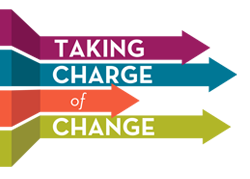30 Oct2013
By Aimee Hall
 The Midwest Regional Educational Laboratory at American Institutes for Research will host a free webinar Wednesday, November 20, 1:30-3:00 p.m. CST, to address the question of how we prepare preservice teachers to work in online and blended settings.
The Midwest Regional Educational Laboratory at American Institutes for Research will host a free webinar Wednesday, November 20, 1:30-3:00 p.m. CST, to address the question of how we prepare preservice teachers to work in online and blended settings.
“Making Connections: Teaching Preservice Teachers to Teach Online” will feature Kathryn Kennedy, director of research at the International Association for K-12 Online Learning, and Leanna Archambault, assistant professor at Arizona State University, who coauthored the 2012 study Offering Preservice Teachers Field Experiences in K-12 Online Learning: A National Survey of Teacher Education Programs.
30 Oct2013
By AACTE

AACTE is excited to announce its new blog: Ed Prep Matters.
Ed Prep Matters offers news and insights on educator preparation from AACTE and guest bloggers in the field. Combining the best elements of AACTE’s former weekly NewsStream service and monthly Advisor newsletter in one convenient, up-to-date site, Ed Prep Matters is your new trusted source for professional information—without the wait!
Key Features:
- Instant access to the latest information by visiting EdPrepMatters.net (no login required!) or by adding Ed Prep Matters to your RSS feed.
- Weekly e-mails every Tuesday that highlight the past week’s posts, in case you missed anything.
- Faster delivery of outside news articles and commentary through the AACTE Twitter feed, which is featured in the blog’s sidebar.
- A dedicated Member News section to share your and fellow AACTE members’ updates and achievements.
We invite you to read and interact with us through this exciting new AACTE resource—and please let us know how we’re doing!
29 Oct2013
By Elizabeth Ross
In October, I was excited to head south to participate in the fall convening of the Mississippi Association of Colleges for Teacher Education (MACTE).
Mississippi had received national attention last spring when its legislature passed a law raising entry requirements into teacher preparation programs. Over the last year, the chapter has been working on strengthening its advocacy efforts and ensuring its members a seat at the table when the state is deliberating on laws such as this one and other regulations that impact educator preparation.
29 Oct2013
By Fayneese Miller
 As I witnessed this summer’s commemorative 50th anniversary celebrations of major U.S. civil rights events, I was reminded of my personal experiences from those times—and thought in particular of my high school English teacher, Mrs. Ruby Archie.
As I witnessed this summer’s commemorative 50th anniversary celebrations of major U.S. civil rights events, I was reminded of my personal experiences from those times—and thought in particular of my high school English teacher, Mrs. Ruby Archie.
My city, Danville (VA), was one of the last in the country to fully desegregate its elementary and secondary schools. Before its desegregation, Danville had one high school for White students and another one for Black students. My first day at the consolidated high school is one that I will never forget. My Black classmates and I were met at the entrance of the school by police officers, belts off and buckles down and at the ready, holding dogs tethered to a leash. As our first day progressed and tension remained high, all Black students were sent to the gym and the doors closed behind us. Mrs. Archie forced her way into the gym and made it clear that none of us would remain in that gym without her, our teacher, present. She cared and was willing to risk her employment to protect us.
28 Oct2013
By Sarah Pinsky
 Last month, I attended the North Carolina Association of Colleges for Teacher Education (NC-ACTE) Fall Forum, “Embracing the Future: Living and Learning in the Context of Globalization.” The conference had strands on technology, curriculum development, globalization, partnerships, and recruiting educators, as well as presentations from the state Department of Public Instruction and the North Carolina Teacher of the Year.
Last month, I attended the North Carolina Association of Colleges for Teacher Education (NC-ACTE) Fall Forum, “Embracing the Future: Living and Learning in the Context of Globalization.” The conference had strands on technology, curriculum development, globalization, partnerships, and recruiting educators, as well as presentations from the state Department of Public Instruction and the North Carolina Teacher of the Year.
One of the highlights of the conference was a keynote presentation from Yong Zhao, who spoke about the importance of the educator preparation profession to our democracy and to our economy. Zhao urged teacher educators to think bigger than scores on standardized tests—to prepare teachers who do more than train their students on employable skills, but who embrace diversity, curiosity, passion, and creativity. In Zhao’s words, “Without interest, you can get good science test scores, but you can’t get great scientists.”
28 Oct2013
By AACTE
On October 23, the Council of Chief State School Officers (CCSSO) announced the creation of the Network for Transforming Educator Preparation (NTEP) to implement recommendations from Our Responsibility, Our Promise: CCSSO Task Force Report on Transforming Educator Preparation and Entry into the Profession. AACTE is pleased to be one of 17 partner organizations that will support this important work alongside CCSSO and the seven states participating in NTEP.
25 Oct2013
By Lisa Johnson Kiefer
On October 25, the National Academy of Education (NAEd) released Evaluation of Teacher Preparation Programs: Purposes, Methods, and Policy Options, a report that aims to provide clearer information and direction around evaluation measures and systems in educator preparation.
AACTE commends the emphasis in the report on validity and agrees with the authors’ conclusions that program evaluation should be adaptable and part of a multiple-measure system.
23 Oct2013
By Aimee Hall

This post also appeared on the AACTE Annual Meeting site.
AACTE’s 66th Annual Meeting will kick off March 1, 2014, with a Welcoming Session featuring Diane Ravitch.
A research professor of education at New York University, Ravitch recently published a book, Reign of Error: The Hoax of the Privatization Movement and the Danger to America’s Public Schools—which argues that the crisis in American education is not a crisis of academic achievement, but of the destruction of public schools across the country—that landed in the number 10 spot on the New York Times Best Seller list.
18 Oct2013
By Jon Gentile and Sarah Pinsky
As you have surely heard, late Wednesday night lawmakers reached a deal to end the federal government shutdown and raise the debt ceiling. The shutdown lasted 16 days, and in the end Republicans agreed to a bill that looked almost identical to what they had rejected three weeks earlier: a debt-limit increase until February 7 and an extension of federal funding through January 15. The Republicans won only one minor victory—a report from the U.S. Department of Health and Human Services on the processes used for verifying the income of subsidy recipients under the newly established health-care exchanges.
25 Sep2013
By AACTE
Although the Senate appropriations committee approved a funding bill for education programs in mid-July, the House did not follow suit; thus there is no education funding bill for the 2014 fiscal year. Education programs, along with many other federal programs, instead will be funded through a continuing resolution (CR).
In recent years, policy makers have also used CRs to extend a provision to allow teachers-in-training to be designated highly qualified. Last year the Coalition for Teaching Quality (CTQ), of which AACTE is an active member, was successful in limiting the extension of this provision to only 1 year and also in inserting a requirement on data collection and reporting.
23 Sep2013
By Aimee Hall
 AACTE will be introducing two exciting new sessions atour 66th Annual Meeting in Indianapolis.
AACTE will be introducing two exciting new sessions atour 66th Annual Meeting in Indianapolis.
After the Opening Reception, we will offer AACTE After Hours. We’ll have the cash bar open from 6:00-8:00 p.m. so you can take all the time you need to fill each other in, make a new acquaintance, or catch up with a fellow presenter.
On March 2, AACTE will host an AACTE Town Hall Meeting. This new General Session will give attendees a
chance to interact with the Association’s leadership.
12 Sep2013
By Saroja Barnes
 edTPA™ passed a critical milestone this summer when the final assessments were submitted and scored as part of an ambitious two-year edTPA field-test period. Completion of this extensive field testing gives new momentum to edTPA, which is scheduled to be fully operational and available to all states and teacher candidates beginning September 18.
edTPA™ passed a critical milestone this summer when the final assessments were submitted and scored as part of an ambitious two-year edTPA field-test period. Completion of this extensive field testing gives new momentum to edTPA, which is scheduled to be fully operational and available to all states and teacher candidates beginning September 18.
During the 2011-12 and 2012-13 academic years, more than 12,000 teacher candidates in 26 states participated in the edTPA process. The candidates came from some 250 institutions. Minnesota, New York, Ohio, Tennessee and Washington were among the states with the highest number of teacher candidates participating in the field test.
09 Sep2013
By Sharon Robinson
This post was originally published on the Learning First Alliance’s Public School Insights blog.
Last month, President Barack Obama visited colleges in New York and Pennsylvania to discuss a plan to make higher education more affordable and accessible to all Americans. Soaring costs threaten accessibility; lack of accessibility threatens the economic growth of the country. Therefore, attention to this matter is absolutely required.
Throughout the country, an increasing number of students must rely on loans to pay for postsecondary schooling and are burdened with debt after graduation. According to the College Board (2012), among students earning bachelor’s degrees in 2010-11 from either public or private nonprofit, 4-year colleges, 60% of students took out student loans and graduated with an average debt of $25,300. This educational debt is especially taxing for graduates who choose to enter lower paying public service careers, such as the teaching profession.
29 Aug2013
By Sharon Robinson
Growing up in Louisville during the civil rights era, with activist parents who believed in the inherent connection between education and equality, I understood early on that a quality education can increase opportunities and improve outcomes for all children. I recall the civil rights hymn, “Woke up this morning with my mind – stayed on freedom,” which inspired so many and captured the urgency of addressing the injustice minorities faced in America at that time. Today, educational equity continues to be in the forefront of my mind.
11 Jul2013
By Sharon Robinson
The Elementary and Secondary Education Act (ESEA) reauthorization bill known as the Student Success Act (H.R. 5), passed last month in a partisan vote by the U.S. House Education and the Workforce Committee, would have a detrimental impact on the American education system and students’ access to qualified teachers. Of note, this legislation would repeal the national standard requiring teachers to be “highly qualified” in the subjects they teach.
 The Midwest Regional Educational Laboratory at American Institutes for Research will host a free webinar Wednesday, November 20, 1:30-3:00 p.m. CST, to address the question of how we prepare preservice teachers to work in online and blended settings.
The Midwest Regional Educational Laboratory at American Institutes for Research will host a free webinar Wednesday, November 20, 1:30-3:00 p.m. CST, to address the question of how we prepare preservice teachers to work in online and blended settings.







 As I witnessed this summer’s commemorative 50th anniversary celebrations of major U.S. civil rights events, I was reminded of my personal experiences from those times—and thought in particular of my high school English teacher, Mrs. Ruby Archie.
As I witnessed this summer’s commemorative 50th anniversary celebrations of major U.S. civil rights events, I was reminded of my personal experiences from those times—and thought in particular of my high school English teacher, Mrs. Ruby Archie. Last month, I attended the North Carolina Association of Colleges for Teacher Education (NC-ACTE) Fall Forum, “
Last month, I attended the North Carolina Association of Colleges for Teacher Education (NC-ACTE) Fall Forum, “
 AACTE will be introducing two exciting new sessions atour 66th Annual Meeting in Indianapolis.
AACTE will be introducing two exciting new sessions atour 66th Annual Meeting in Indianapolis. edTPA™ passed a critical milestone this summer when the final assessments were submitted and scored as part of an ambitious two-year edTPA field-test period. Completion of this extensive field testing gives new momentum to edTPA, which is scheduled to be fully operational and available to all states and teacher candidates beginning September 18.
edTPA™ passed a critical milestone this summer when the final assessments were submitted and scored as part of an ambitious two-year edTPA field-test period. Completion of this extensive field testing gives new momentum to edTPA, which is scheduled to be fully operational and available to all states and teacher candidates beginning September 18.